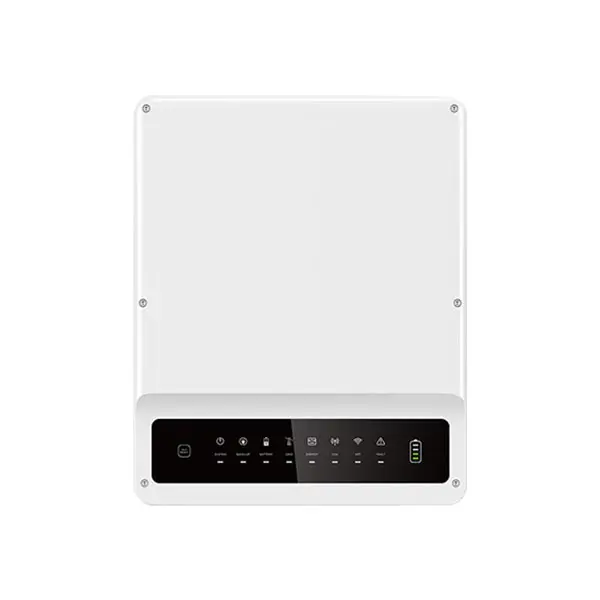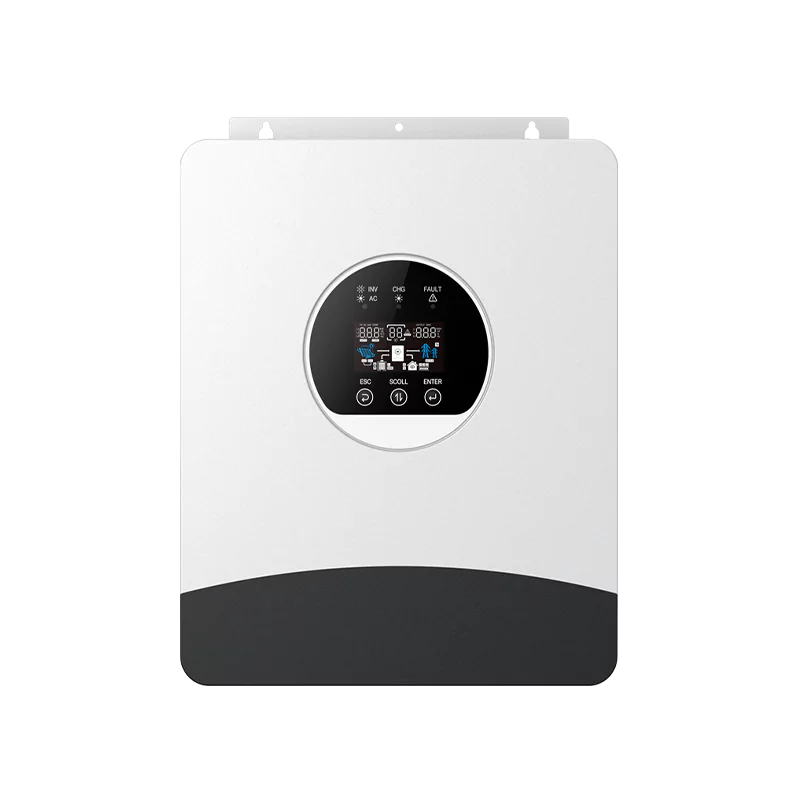Solar inverters are the backbone of any solar power system—the direct current (DC) that solar panels produce is converted into alternating current (AC) by solar inverters, which is used on a day-to-day basis. And since the majority of inverters are installed outside, an obvious question is incessantly popping up: are solar inverters waterproof? And if not waterproof completely, are they at least water-resistant in a manner that they can withstand elements?
Let's get into how solar inverters are constructed to withstand the weather, which types perform best in which applications, and what to search for as far as certifications go when buying one.
Understanding the IP Rating: What It Tells You About Water Resistance
In determining whether a solar inverter will be able to handle rain, snow, or moisture, the IP (Ingress Protection) rating is your safest bet. For example, an IP65-rated inverter means it's fully dust-proof and protected from low-pressure water jets from all sides. That makes it ideal for typical outdoor use.
But here's something to think about: Is IP65 sufficient for locations that receive heavy rain or coastal humidity? For typical residential application, yes. But if you reside in storm-battered locations such as Florida or the Philippines, consider an inverter with higher water resistance rating such as IP66 or IP67.
Outdoor Inverters vs. Indoor Models: Choosing by Application
Not all solar inverters are created equal. There are two general categories:
- Outdoor-rated inverters:Sealed, vented, and moisture, UV, dust-coated to protect against the elements. A good example is the Fronius Symo Hybrid, which is commonly used in European markets like Germany.
- Indoor-only inverters:Typically placed in garages or utility rooms. Offer less protection against the elements and not ideal for outdoor exposed locations.
If the installation must be on an exterior wall or pole, use outdoor-rated. In real-world installations like those found in rural Queensland, Australia, weatherproof inverters have even survived monsoon seasons with minimal maintenance.
Case Study: Waterproof Inverters in Coastal China
In Zhuhai, Guangdong Province, a corporation of solar power installed over 500 waterproof inverters by a seashore solar farm. They applied IP66-rated inverters, combined with stainless-steel enclosures to provide resistance from salt spray. Failure rates remained below 0.5% at the end of three years, highlighting how critical waterproof design is for areas near coasts.

What Materials and Designs Make an Inverter Waterproof?
High-quality solar inverters typically consist of:
- Sealed aluminum or stainless steel casing
- Gasket-protected connectors
- Heat sinks instead of internal fans (in order to rule out water intake)
- Conformal coating of the circuit boards
These add-ons minimize water entry, prevent corrosion, and extend the unit's lifespan. Don't forget, however, that even waterproof inverters are prone to mounting—on a vertically aligned surface with shading in order to reduce rain directness.
Are Microinverters More Waterproof Than String Inverters?
Microinverters are often installed right under the solar panel, directly exposed to weather. As a result, they’re usually rated IP67, meaning they can even survive temporary immersion. In contrast, string inverters are usually IP65, relying more on housing and placement for protection.
So, if you’re installing solar panels on a floating platform or an RV rooftop, microinverters may be a more robust waterproof option.
Maintenance Considerations: Waterproof Doesn’t Mean Maintenance-Free
Even the best-rated waterproof inverter can benefit from:
- Visual checks(6–12 months)
- Cleaning dust or bird droppings off the enclosure
- Check seal on cables and boxes for cracks
Why is it significant? Because slight leaks or corrosion over time will progressively lower efficiency or lead to shutdowns. That is why some California and Arizona technicians recommend servicing every 12 months, especially in dusty or humid environments.

Have a Fully Certified, Weatherproof Inverter?
If you’re considering a reliable, outdoor-ready solar inverter, this Three-phase Hybrid Grid Energy Storage Inverter from LZYESS features a robust IP65 enclosure, efficient heat dissipation, and smart grid capabilities—ideal for both rooftop and containerized solar setups.
In short, not all solar inverters are waterproof—but many are designed with excellent water resistance. Always check the IP rating, choose models based on your local weather conditions, and don't forget the value of certified outdoor gear. When properly selected and properly cared for, a waterproof inverter is more than sufficient to weather rain, wind, and everything in between.

.webp)